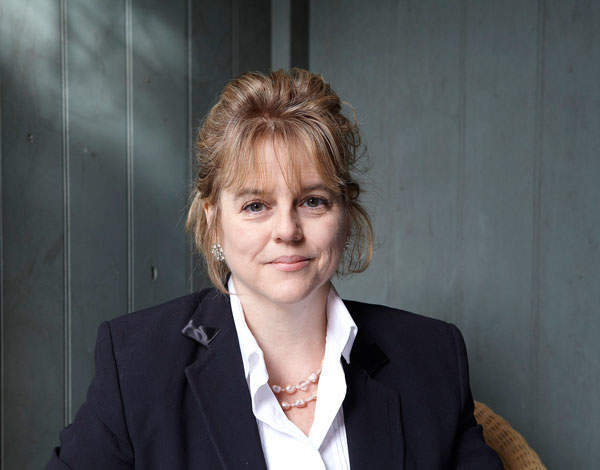

For the last few months, whenever anyone has asked me the subject of my memoir Black Rainbow, I’ve tended to answer that it’s about the consoling power of poetry.
It is. I’ve included the 40 poems which gave me solace when unwell. But it is also a highly personal account of a sixteen-year journey through depression, and two ‘depressive episodes’ in particular – breakdowns might be better descriptions. The first time I was bed-ridden for months; the second for nearly a year.
When I say this, the reaction is no longer one of polite interest. In most cases, it is as if I had given others licence to remove their own masks. Friends, colleagues, cousins, parents at the school gate: they confide that they too suffer from high levels of anxiety and depression, and they too find it difficult to open up.
Their relief to find a fellow sufferer is palpable. For all the steps that have been taken to reduce the stigma of mental ill-health, my experience is that sufferers, myself included, find it hard to admit to having depression. If you are successful by conventional, professional standards, (I was a Times journalist, my husband a Goldman Sachs banker) you might find it even more difficult to admit to suffering from depression.
You might be met with what has become a cliché of mental health misconception: the old ‘you’ve got nothing to be depressed about’, a response I have sometimes encountered. Equally, you may find yourself guiltily asking, ‘What have I got to be depressed about?’ or feeling guilty for not making the most of a lifestyle that many others would gladly trade you for.
But a supposedly busy or glamorous lifestyle is no defence against falling ill: depression makes no allowance for the thread count of your sheets. Indeed, depression is so widespread that studies have shown that one in five will experience it at some point in their lives with one in twenty suffering from a severe form. Seven per cent of adults in the UK are currently taking antidepressants.
A class of depression
Sufferers are not defined by class or status. Indeed, counterintuitively, an underlying predisposition to depression may be exacerbated by the stress and relentless hard work it can take to be supposedly successful. In my case, my own over-sensitive nature combined with an attempt to be a career girl, a mother and a supportive wife led to a debilitating sense of being overwhelmed and illness.
The publication of my book will mean that I will henceforth be completely open about my own battles with mental illness. I can’t pretend I’m not nervous. There have been plenty of comments from well-meaning friends who have asked whether I am sure I really want to ‘go out there with all this stuff’, and if it’s a good idea to ‘bare my soul’.
But I’m also excited. I wrote the book for two main reasons. The first is I wanted to write about the physical pain of depression which I feel is still poorly understood. The second is that I wanted to share how poetry helped me recover: words are free and have no side-effects. Where depression isolates us in our own minds, poetry reminds us of our common humanity. In different ways, I hope both aims will help reduce the stigma about suffering poor mental health.
My battle with mental illness began seventeen years ago when I was a working mother and Times journalist. I was married with two children, was ambitious and loved my career. I was blessed in many ways with a supportive husband who worked at Goldman Sachs and had recently stood for Parliament in the May 1997 election. We were high-achieving young people. Yet it took just three days from the first niggling anxiety for depression to fully incapacitate me.
When I was diagnosed, I was perplexed: I had thought depression was a case of feeling unhappy and low-spirited, and had absolutely no idea it could be so physically painful. I admit to being duped by stigma at the time – I found it difficult to tell my peer group I was ‘depressed’. They seemed to be managing highflying full-time jobs, children and stylish wardrobes. I also felt guilty – depression was for people who had difficult or troubled lives, whereas I counted myself incredibly lucky, as well as very happy. No-one would believe I was depressed, or eligible for what I associated with depression.
It took a second major episode six years later, and an on-going battle with the Black Dog, for me to acknowledge what I had hitherto tried to deny: I do indeed suffer from depression.
I still find it hard to say or write this. But one of the main reasons I can is my realisation that depression is not what I had first wrongly perceived it to be – a sort of disconsolate mood, all in the mind. It is an illness with horrid physical symptoms that can’t be denied.
Brain gone wrong
Like any other organ in your body, your brain can go wrong. We have relatively little understanding of how it operates. Very roughly, as someone suffering from acute anxiety and panic, when I suffer a depressive episode my adrenaline levels are so high (albeit unmeasurable) that they stop me sleeping and eating, which contributes to the physical pain.
My body means well: it goes into the fight or flight response which the body resorts to in order to cope with life-threatening challenges. All my priorities switch from long-term to short-term survival. All systems are in permanent emergency response. I mobilise fuel reserves and dispatch them to my brain and muscles.
I force in extra oxygen to burn the fuel. My heart pounds non-stop as my blood pressure and breathing increases. My appetite disappears as my body shuts down energy-consuming digestive processes. My pupils dilate to let in more light, my reaction time speeds up, all in readiness for attack.
All these physical responses are normally short-lived, but in my state of heightened arousal they are maintained, exhaustingly and agonisingly. I have never suffered such physical pain as I have at the height of a depressive episode. I want to commit suicide, not because I am unhappy with my life, but because of the extremity of the pain.
Doctors now agree that the physical pain of a major depressive episode can be worse than a physical illness. One doctor was quoted as saying in a classic book on depression that if he had to choose between suffering from renal colic, a heart attack and an episode of severe depression, he ‘would prefer to avoid the pain of depression’:
It is a surprisingly physical sensation, with a surprising resemblance to coronary pain, because it too is total. But it cannot be relieved quickly. It even threatens life. It is oneself and not part of one’s machinery, a form of total paralysis of desire, hope, capacity to decide what to do, to think or to feel except pain and misery.
Depression is an illness, like cancer or diabetes, with attendant physical symptoms. This tangibility has helped me hugely in being more open: I wouldn’t be ashamed or blame myself if some cells had mutated in my body or my insulin production was faulty. Nor should anyone have to apologise for suffering from depression.
My book was a place where I could finally admit to the truth of a clinical illness. I could explain that having an outwardly high-octane, successful life didn’t stop me getting depressed, or, may in fact, have been a root cause. And once I got to that stage, then came the realisation that many of my peers I had held up as managing just fine were on antidepressants, too.
If my book helps one other sufferer to open up, I will be happy that I wrote it.
Rachel Kelly’s memoir Black Rainbow: How words healed me – my journey through depression is published today by Hodder & Stoughton. Its accompanying app, also called Black Rainbow, is available for download on the Apple App store for £1.49. All author proceeds of the book and app are being given to the charities SANE and United Response.
Rachel is giving a talk at The Idler Academy on 5 June on the healing power of poetry www.idler.co.uk
Follow Rachel @rache_Kelly or go to www.black-rainbow.co.uk
Source: Dr John Horder, a former president of the Royal College of General Practitioners, quoted by Lewis Wolpert, Malignant Sadness: The Anatomy of Depression (Free Press, 1999), p61







